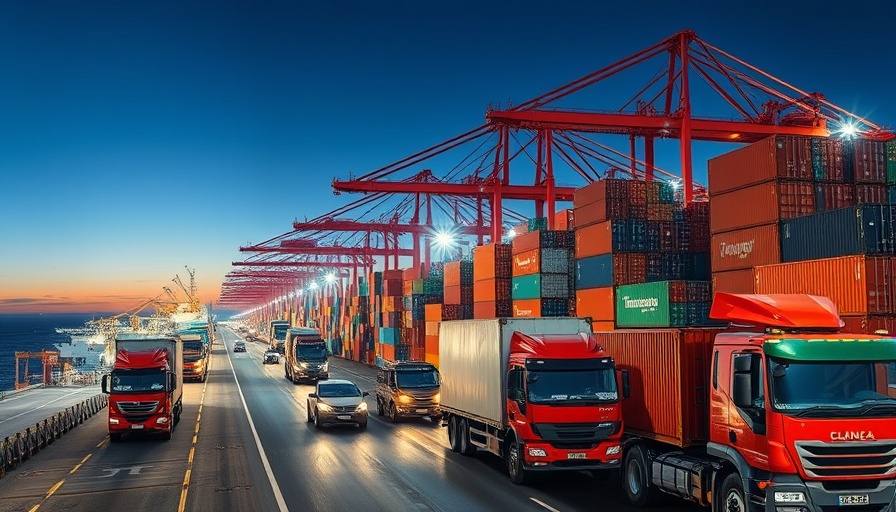
Significant Decline in Imports: What Does it Mean?
In April, the U.S. experienced a dramatic 20% drop in goods imports, largely attributed to the controversial tariffs imposed by former President Donald Trump. This reduction not only highlights ongoing trade tensions but also raises significant questions about the state of the U.S. economy and its relationship with global partners.
Tariffs and Their Ripple Effects
Trump's tariffs aimed at protecting American industries resulted in increased costs for foreign goods. While these tariffs were designed to encourage domestic production, they led to unintended consequences. Companies found themselves paying more for imports, and many passed these costs onto consumers. This price increase has likely contributed to declining import volumes as consumers and businesses became more cautious about their spending.
The Impact on the Bay Area Economy
The Bay Area, known for its thriving tech industry and startup ecosystem, is not immune to these changes. A sharp decline in imports could trigger a shift in local business dynamics, particularly for companies reliant on international supply chains. Tech startups operating in Silicon Valley, for instance, may face challenges in securing necessary components for their innovations, ultimately affecting their growth potential and venture capital funding opportunities.
Long-Term Trends: Navigating Economic Uncertainty
This downturn in imports comes at a time when businesses are grappling with broader economic conditions. Industry leaders must adapt to these challenges by diversifying their supply chains and implementing innovative business growth strategies. Understanding consumer behavior trends and making informed adjustments is critical for survival in this volatile market.
Responding to Supply Chain Disruptions
In recent years, supply chain disruptions have become a common narrative due to the pandemic and geopolitical tensions. Businesses in the Bay Area can leverage local resources and reduce dependency on international imports. This strategic shift can enhance resilience and foster partnerships within the local economy, contributing to sustained growth.
The Role of Innovation in Recovery
Innovation will play an essential role in navigating the challenges posed by these trade disruptions. Companies that focus on digital transformation, sustainable practices, and corporate governance will be better positioned to adapt to changes in the marketplace. Furthermore, investing in new technologies and sustainable business practices not only addresses immediate challenges but also aligns with broader economic forecasts for a greener future.
Corporate Culture and Workforce Adaptation
The implications of these economic changes extend to corporate culture and employee engagement strategies. Companies must foster a culture of adaptability, ensuring that employees feel empowered to contribute ideas that enhance operational efficiency and innovation. Promoting workforce diversity can also lead to better decision-making during crises, reflecting a range of perspectives that can drive effective solutions.
Conclusion: A Time for Reconsideration
As U.S. goods imports continue to fluctuate in response to evolving trade policies, businesses must reassess their operational strategies and stay informed about economic shifts. The Bay Area stands at a crossroads, where local businesses have the opportunity to innovate and thrive amidst uncertainties. To navigate the complexities of the current landscape, companies should focus on strengthening their foundations while looking for new, sustainable paths to growth.
 Add Row
Add Row  Add
Add 



Write A Comment